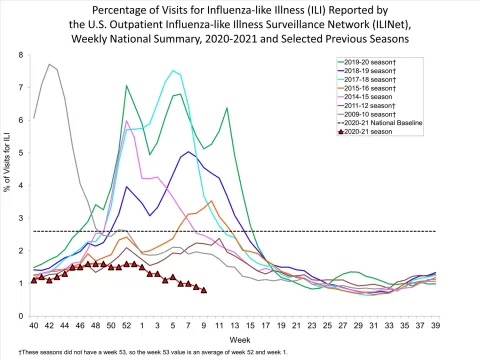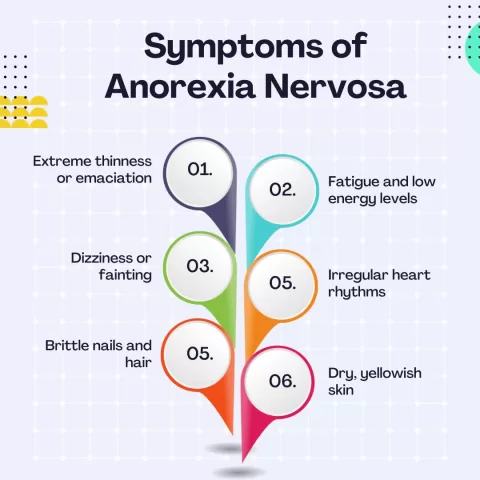Cancer risk warnings on alcohol are becoming a focal point of public health discussions, as recent statistics reveal a troubling correlation between alcohol consumption and cancer incidence. The U.S. Surgeon General has called attention to this issue, noting that alcohol is the third leading preventable cause of cancer, leading to approximately 100,000 new cases and 20,000 deaths annually. This urgent advisory underscores the need for clear labeling on alcoholic beverages, informing consumers of the severe health risks of alcohol consumption. Current guidelines suggest moderation, yet many remain unaware of the substantial alcohol cancer link and its implications on their health. As conversations around this topic expand, cancer prevention tips are more essential than ever, urging individuals to rethink their relationship with alcohol and consider safer drinking practices.
In the ongoing debate about the health ramifications of drinking alcohol, the necessity for cancer-related alerts has gained momentum, especially following new advisories from health authorities. Discussions surrounding the interplay between alcohol and cancer risk reveal alarming truths that many individuals may overlook, necessitating clear communication about these dangers. The evolving conversation over alcohol consumption guidelines is rooted in a desire to protect public health, pushing for comprehensive understanding among the population. Emphasizing the vital connection between moderate drinking and increased cancer susceptibility can motivate meaningful changes in consumption habits. As society becomes more aware of the multifaceted health risks associated with alcoholic beverages, the promotion of healthier lifestyle choices becomes increasingly critical.
Understanding the Alcohol Cancer Link
Research has conclusively established a strong connection between alcohol consumption and an increased risk of various cancers. Alcohol is a known carcinogen that not only contributes to the development of cancers such as breast, liver, and colorectal cancer but is also implicated in the risk factors for at least seven different types of cancer. This alarming link underscores the critical need for public awareness and education about the potential dangers associated with alcohol consumption. Studies show that the risk of both developing and dying from these cancers rises with increased alcohol intake, making it imperative to recognize consumption habits.
Despite the evident risks, many Americans remain unaware of the extent to which alcohol can increase their cancer risk. It was reported that only about 45% of adults connect their drinking habits to cancer, a gap in public knowledge that needs to be addressed. This lack of awareness is why the U.S. Surgeon General has called for a formal advisory, suggesting that more robust public health messaging similar to that employed in tobacco control initiatives is necessary to educate the population about the serious health risks associated with alcohol.
Surgeon General’s Advisory on Alcohol and Health Risks
The U.S. Surgeon General, Dr. Vivek Murthy, has highlighted the urgent need for a comprehensive understanding of the health risks posed by alcohol consumption. The recent advisory he released not only emphasizes cancer risks but also advocates for revised alcohol consumption guidelines. Currently, the guidelines suggest that women limit intake to one drink a day and men to two. However, given the associated risks of cancer and other health complications, Dr. Murthy believes these limits should be re-evaluated, encouraging individuals to consider even lower consumption levels to reduce overall health risks.
This advisory could be a turning point in how we view alcohol consumption in society. Much like the Surgeon General’s warnings on tobacco have led to cultural shifts regarding smoking, similar efforts to highlight alcohol-related health risks could alter public behavior towards drinking. Increasing awareness of the Surgeon General’s advisory on the health risks of alcohol consumption is vital, not only to foster healthier attitudes toward alcohol use but also to prevent future cancer cases linked to alcohol.
Health Risks of Alcohol Consumption: Beyond Cancer
While the link between alcohol and cancer is a pressing concern, the health risks associated with alcohol consumption extend beyond this critical area. Alcohol usage is a contributing factor not just for cancer but also for several other serious health conditions, including liver disease, cardiovascular issues, and mental health disorders. For instance, the belief that moderate drinking can provide cardiovascular benefits has been challenged by recent studies, suggesting that any potential benefits may be outweighed by the risks of other diseases, including the aforementioned cancers and heart complications.
Thus, the health risks tied to alcohol consumption necessitate a broader conversation. Public health guidelines should encompass not just cancer risks but also the overall health consequences of alcohol. By approaching the subject holistically, it presents an opportunity for health educators and policymakers to promote a more comprehensive understanding of how alcohol affects the body and how reducing consumption can lead to better health outcomes.
Cancer Prevention Tips Related to Alcohol Use
In light of the Surgeon General’s findings, adopting practical cancer prevention tips is essential for those who choose to consume alcohol. First and foremost, a critical step is understanding and recognizing the quantity of alcohol consumed. Keeping track of drinks and adhering to recommended guidelines can significantly mitigate the risk of cancer and other health issues. It is also beneficial to engage in discussions about one’s drinking patterns with healthcare providers, who can provide personalized advice and support for reducing risk.
Moreover, integrating lifestyle changes such as increased physical activity, healthy eating habits, and regular health check-ups can bolster one’s defense against the health risks associated with alcohol. Emphasizing moderation, awareness, and informed choices can greatly influence an individual’s health trajectory, particularly regarding cancer prevention. These actions resonate with the Surgeon General’s message, highlighting that a commitment to reducing alcohol intake and being informed can lead to significant health benefits.
Reassessing Alcohol Consumption Guidelines
Current alcohol consumption guidelines recommend safe limits for adults, yet these have come under scrutiny, especially in light of the recent advisory from Dr. Murthy. The limitations set, which suggest a maximum of one drink for women and two for men, don’t fully encompass the dangers that exist even at these levels. Particularly with the strong link between alcohol and various types of cancer, these guidelines may need reevaluation to better reflect the health risks that come with drinking.
This calls into question how society perceives moderate drinking and highlights the need for education on lower consumption levels and the associated risks. Revamping these guidelines based on new research could not only enhance public knowledge but also catalyze healthier behaviors across the population, aligning drinking habits with proactive health measures and cancer risk reductions.
The Role of Public Education in Alcohol Awareness
Public education plays a pivotal role in addressing the health risks associated with alcohol consumption. Dr. Murthy advocates for a comprehensive educational campaign aimed at informing the public about the cancer risks of drinking. Just as tobacco use has been curtailed through widespread awareness and educational initiatives, similar efforts are crucial for alcohol consumption. This could involve distributing informational resources, implementing community programs, and incorporating educational content into schools.
Increasing public awareness is vital for bridging the knowledge gap regarding alcohol-related cancer risks. Enhancing education efforts can lead to behavior changes that reduce alcohol consumption and its associated health complications. By fostering a well-informed society, we can collectively work towards decreasing the cancer burden linked to alcohol consumption and promoting healthier lifestyle choices.
The Importance of Legislative Action on Alcohol Health Warnings
For the Surgeon General’s call for cancer warnings on alcohol to be meaningful, legislative action is essential. Suggested health warnings on alcoholic beverages could serve as a direct reminder of the risks involved with consumption, akin to the tobacco regulations that have influenced public perceptions about smoking. Having visible warnings on labels can stimulate conversations around alcohol consumption and its associated health risks, particularly regarding cancer.
This potential legislation represents not just a step towards public safety but also an opportunity for bipartisan collaboration in health policy. As society strives for more informed consumption choices, legislative measures that enforce these warnings can play a crucial role in shaping healthier norms and attitudes about drinking, ultimately helping to mitigate the risks associated with alcohol.
Changing Cultural Norms Regarding Alcohol Consumption
Cultural perceptions of alcohol consumption often skew towards acceptance, with many viewing drinking as a norm or even a rite of passage. However, the U.S. Surgeon General’s advisory highlights that this must change as chronic alcohol consumption is linked to severe health outcomes, including a variety of cancers. It calls for a cultural shift in how we approach alcohol, from a celebratory symbol to a substance that warrants caution and respect due to its associated health risks.
Promoting awareness campaigns that advocate for reduced consumption, as well as providing support for those seeking to cut back or abstain, can gradually shift the cultural perception of alcohol. By fostering environments that support sober outings and responsible drinking, we can cultivate a society that prioritizes health and well-being over societal pressures, thereby reducing overall alcohol consumption and associated cancer risks.
Moving Forward: Collective Action Against Alcohol-related Cancers
The challenge ahead is clear: making collective strides towards reducing the impact of alcohol on public health and cancer risk. This requires collaboration among healthcare providers, policymakers, and the community at large. Dr. Murthy’s advisory should serve as a unified call to action that engages various stakeholders to foster a comprehensive public health strategy that addresses both alcohol consumption and cancer prevention.
Effective measures could include revising alcohol consumption guidelines, increasing funding for public health campaigns, and amplifying resources for counseling on drinking behaviors. Such initiatives aim not only to raise awareness but also to fundamentally change the relationship that society has with alcohol—ultimately striving towards a significant reduction in alcohol-related cancers and promoting healthier living for all.
Frequently Asked Questions
What is the link between alcohol consumption and cancer risk?
The alcohol cancer link is significant, as alcohol consumption is recognized as the third leading preventable cause of cancer in the U.S. It is associated with seven different types of cancer, including breast and liver cancer. Epidemiological studies indicate that even moderate drinking can elevate cancer risk, highlighting the need for awareness and caution regarding alcohol use.
What are the key points from the Surgeon General’s advisory on alcohol and cancer warnings?
The U.S. Surgeon General’s advisory emphasizes the health risks of alcohol consumption, specifically its association with increased cancer risk. Dr. Vivek Murthy calls for warning labels on alcoholic beverages and reassessment of current alcohol consumption guidelines, which suggest safe limits that may still pose considerable cancer risks.
How does alcohol contribute to breast cancer incidence?
The Surgeon General noted that in 2019, 16% of breast cancer cases in the U.S. were linked to alcohol consumption. This strong correlation underscores the importance of understanding the health risks of alcohol consumption, particularly for women, and emphasizes the need for effective cancer prevention tips.
Are current alcohol consumption guidelines adequate in terms of cancer risk?
Current alcohol consumption guidelines suggest up to one drink per day for women and two for men, but recent findings indicate that even these limits may increase cancer risk. The Surgeon General advocates for a reassessment of these guidelines to better reflect the health risks of alcohol consumption.
What actions are necessary to raise awareness about alcohol-related cancer risks?
To improve public awareness about the cancer risks associated with alcohol, the Surgeon General calls for more robust public education initiatives similar to tobacco regulation efforts. This includes clearer labeling on alcoholic products and better messaging to educate consumers about alcohol consumption and health risks.
What should I do to reduce my cancer risk related to alcohol?
To mitigate cancer risk associated with alcohol, it is advisable to reduce or limit alcohol intake significantly. Following cancer prevention tips, such as avoiding high alcohol consumption altogether or adhering strictly to lower consumption limits, can help diminish risk and promote better health.
Why is it important to expand the existing Surgeon General’s alcohol warning?
Expanding the existing Surgeon General’s warning to include cancer risks is crucial as it addresses the significant misinformation and lack of awareness about the health risks of alcohol consumption. Enhanced public awareness can lead to better decision-making regarding alcohol use and ultimately contribute to reduced cancer incidence.
| Key Point | Details |
|---|---|
| Alcohol as a Cancer Risk Factor | Alcohol is the third leading preventable cause of cancer in the U.S., linked to around 100,000 cases and 20,000 deaths annually. |
| Types of Cancer Linked to Alcohol | Alcohol consumption is associated with seven types of cancer, with 16% of breast cancer cases linked to alcohol. |
| Public Awareness | Only 45% of American adults are aware of the link between alcohol and increased cancer risk. |
| Current Guidelines | Government guidelines suggest women should limit to one drink a day and men to two, but these may need reevaluation. |
| Historical Misconceptions | Moderate alcohol consumption was once seen as heart-healthy, but recent evidence shows it increases risks for other conditions. |
| Advocacy for Warning Labels | Dr. Murthy calls for new warning labels on alcohol to include cancer risks, similar to tobacco regulations. |
| Public Education and Policy | More robust public education is needed regarding the health impacts of alcohol, with potential bipartisan support for policy changes. |
Summary
Cancer risk warnings on alcohol are becoming increasingly important as recent advisories highlight the significant health risks associated with alcohol consumption. The Surgeon General’s call for warning labels aims to enhance public understanding of alcohol’s connection to various cancers. By implementing educational initiatives and revisiting consumption guidelines, we can work towards lowering the alarming rates of alcohol-related cancer cases. It is essential for legislators and public health advocates to unite in this effort, ensuring that consumers are appropriately informed about the dangers of alcohol and its effects on health.
The content provided on this blog (e.g., symptom descriptions, health tips, or general advice) is for informational purposes only and is not a substitute for professional medical advice, diagnosis, or treatment. Always seek the guidance of your physician or other qualified healthcare provider with any questions you may have regarding a medical condition. Never disregard professional medical advice or delay seeking it because of something you have read on this website. If you believe you may have a medical emergency, call your doctor or emergency services immediately. Reliance on any information provided by this blog is solely at your own risk.








